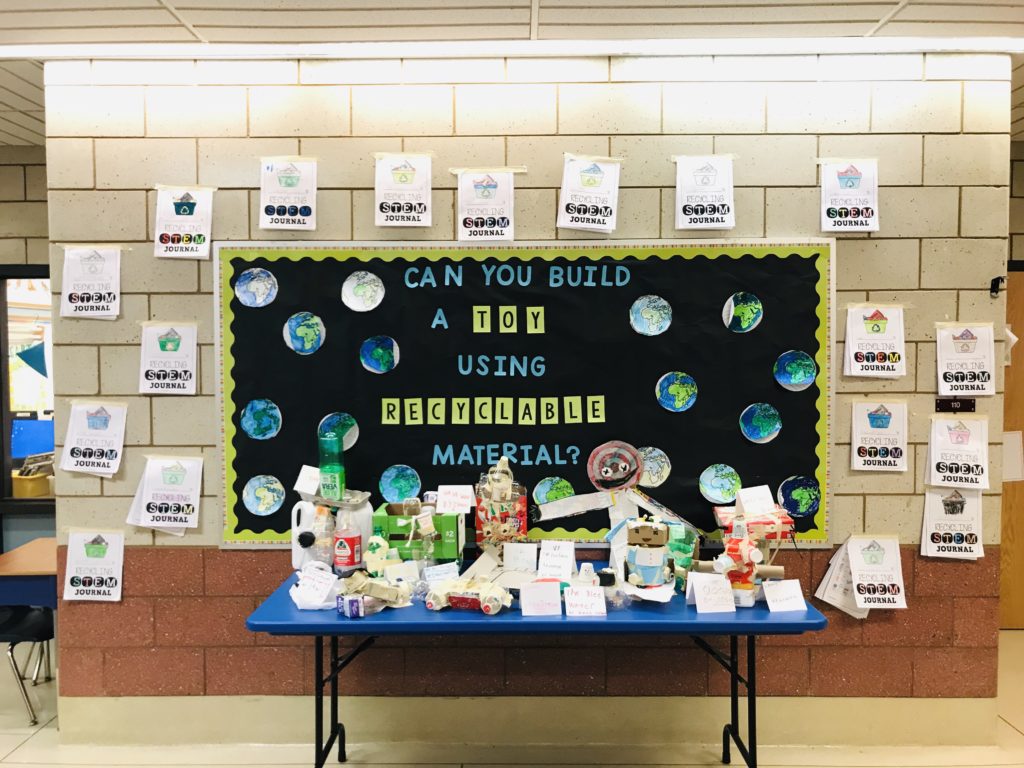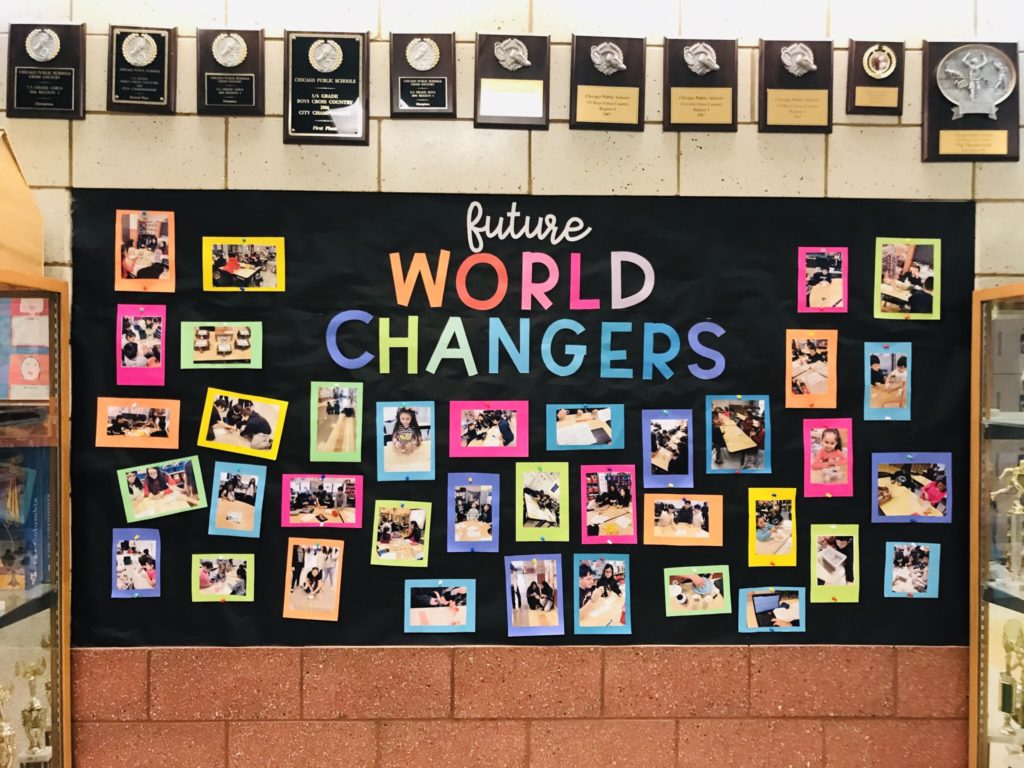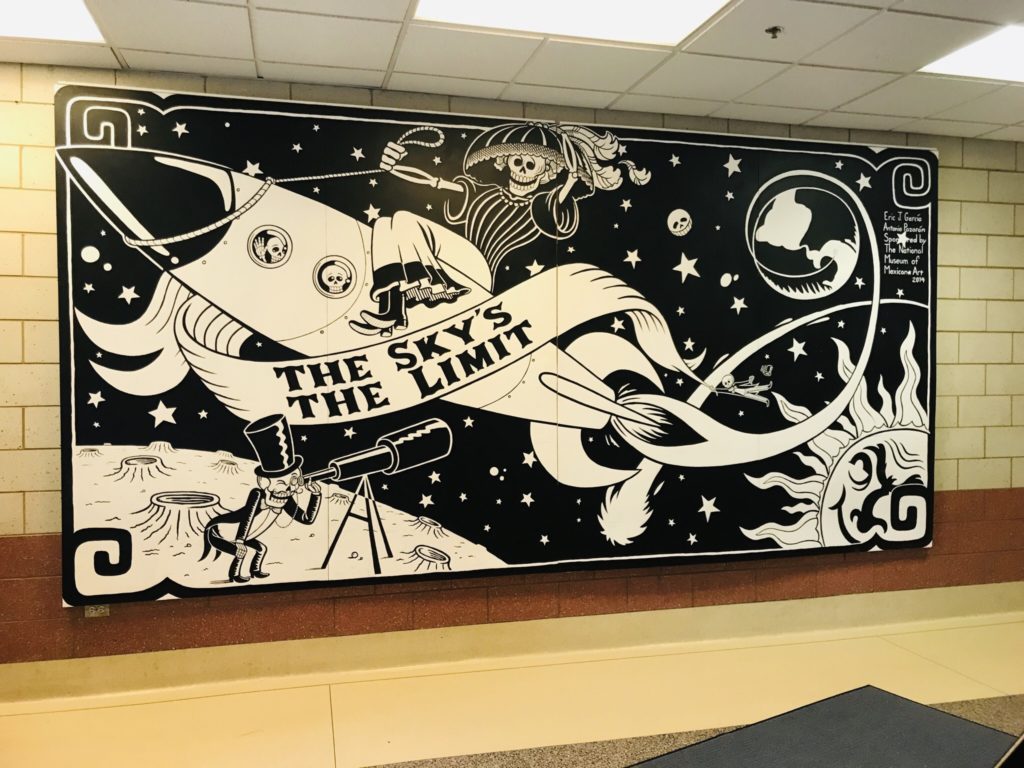For Principal Eileen Considine, leading Columbia Explorers has been a chance to come full circle. The story starts all the way back in 1994, when she taught at nearby Shields Elementary with a colleague, Jose Barrera, who was working as the bilingual coordinator. The two educators forged a deep friendship and working partnership.
In 2001, when Barrera opened the brand-new Columbia Explorers building, Considine was on his team as instructional coordinator. As Considine told the Chicago Public Education Fund, “He was always pushing me.” But at the time, she wanted to stay in the classroom, so she took the instructional coordinator job just to help Columbia Explorers in its launch year. Then she went back to her beloved eighth-graders at Shields and stayed there for six years.
But Barrera kept pushing her toward leadership. And sure enough, in 2007, Considine returned to Columbia Explorers as curriculum coordinator and later assistant principal. When Barrera was ready to retire, Considine was well prepared to step into the very large shoes he left behind.
It’s a scenario every principal dreams of, but not every principal achieves. As Assistant Principal, Considine had full charge of teacher professional development. Before she arrived, Barrera had brought in consultants, but on her watch the school shifted to having teachers teach each other. “Because he trusted me, he allowed me to do whatever I thought might work as long as I ran it past him,” she said. “I could focus on developing the teachers.”

From its very beginning, the school had a strong commitment to curriculum and instruction. Back in 2003, Columbia Explorers joined a small group of Chicago schools piloting an intensive, hands-on science curriculum, a rare find in elementary schools. Considine took the work to new levels by creating a culture where teachers routinely observe each other’s classrooms, not just on their own grade level, but across grades. Grade-level team planning helps build consistent academic expectations from classroom to classroom, and the chance to see what teachers in earlier and later grades are doing helps ensure kids get what they need from one grade to the next.
“The teachers are very invested with high expectations and are open to trying what is successful in other classrooms,” Considine said. She has encouraged teachers to focus on conversational speaking and listening, not just to help her large numbers of English learners succeed on the district-required Access test, but to support their overall intellectual development. “It can be such a powerful tool for them in life, in any subject. If you walk into my classrooms, I’d say nine times out of 10 you’ll hear kids talking and listening to each other, having Socratic seminars. … It’s encouraging kids to have a voice and know that their voice is valuable.”

Despite a long track record of academic success, Columbia Explorers is not resting on its laurels. This summer, the school will transform its science lab into a STEM room focused on technology and engineering. Next school year, bilingual students will have their first chance to earn the Seal of Biliteracy, state recognition for public school students who have achieved high levels of proficiency in one or more world languages in addition to English.
Emily Johnson
Latest posts by Emily Johnson (see all)
- At Columbia Explorers, Mentoring Keeps Excellence Consistent - June 18, 2019
- Webster Elementary’s Khalid Oluewu - May 3, 2019
